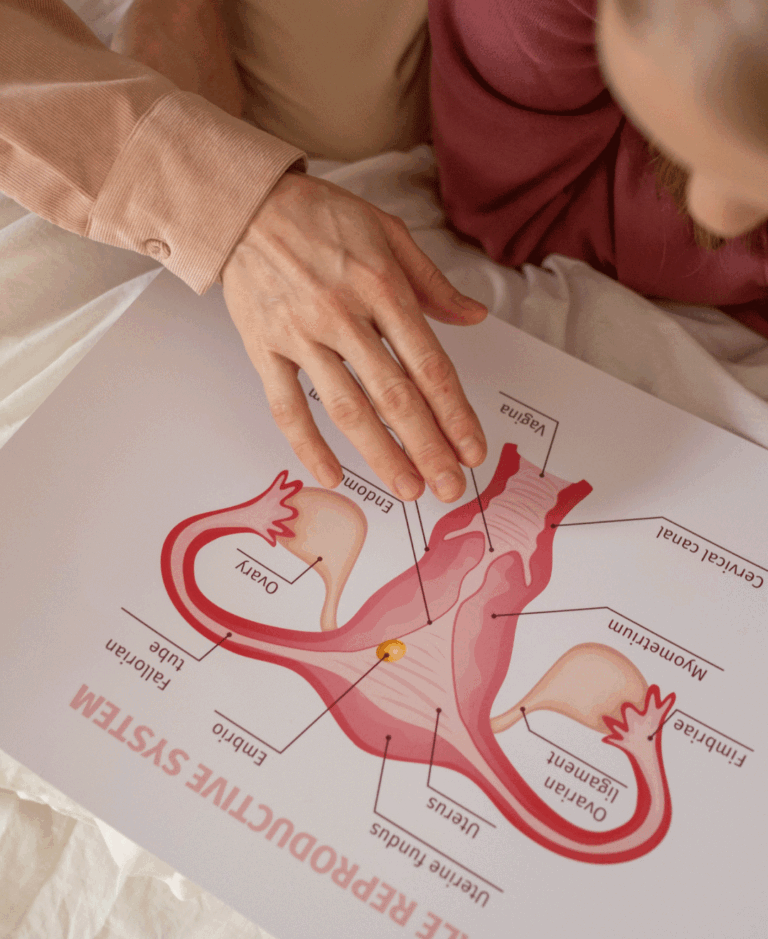
5 Most Significant Symptoms of Menopause

5 Most Significant Symptoms of Menopause
Although menopause is a natural phase in a woman’s life, have you ever wondered how it can affect the quality of life? It is a question that women ask themselves when they begin the fourth or fifth decade. In honor of Menopause Day, celebrated today, we’ve chosen to address a topic that affects millions of women worldwide.
Menopause marks the end of the menstrual cycle and is defined as the absence of menstruation for a continuous period of one year or more. At this stage of life, ovarian function ceases, indicating the end of the reproductive period and the decrease in estrogen and progesterone hormones mainly.
The process of reproductive aging is gradual and begins long before the final menstrual period. The menopausal transition, or perimenopause, is the time that elapses from the onset of changes in the regularity of the menstrual cycle, along with the appearance of hot flashes, and extends until one year after the last menstruation, when menopause is established.
There are various symptoms that accompany menopause, which are attributable to the hormonal changes resulting from the decreased ovarian secretion of its hormones (estrogen and progesterone). These central symptoms of menopause include:
- Hot Flashes: This is the most common symptom of menopause and perimenopause, occurring in up to 80% of women. However, it’s estimated that only 20 to 30% of affected women seek medical attention. When hot flashes occur at night, women describe them as night sweats. Hot flashes usually start suddenly as a feeling of warmth in the upper chest and face and quickly spread. The warmth typically lasts for 2 to 4 minutes and is followed by sweating, palpitations, and sometimes shivering and a sense of anxiety. Hot flashes can occur multiple times during the day and/or night. Untreated hot flashes typically resolve on their own within 4-5 years for most women.
- Sleep Disorders: A concerning feature of hot flashes is that they are more common during the night and are associated with insomnia, characterized by waking up early and being unable to fall back asleep. However, women may experience sleep disturbances even in the absence of hot flashes. This condition can affect around 46% of women during menopause.
- Emotional disturbances: Numerous studies report a significant increase in the onset of depression, anxiety and/or mood swings in women during the menopausal transition, compared to the premenopausal stage. Anxiety and depression can contribute to sleep disturbances. Women experiencing hot flashes are more likely to have depression.
- Vaginal Dryness: The vagina and urethra are tissues that depend on estrogen (the female sex hormone). Therefore, the decrease in estrogen levels that occurs with menopause leads to a thinning of the vaginal lining. This results in vaginal atrophy, causing symptoms such as vaginal dryness, itching, and pain during sexual intercourse. This symptom is experienced by up to 47% of women within 3 years of starting menopause. Symptoms usually worsen over time due to the decline in estrogen levels.
- Sexual Function: Estrogen deficiency leads to a decrease in blood flow to the vagina and vulva, resulting in reduced vaginal lubrication. The cervix can also be affected, and the elasticity of the vagina decreases as well. These symptoms improve significantly with hormonal treatment, especially with vaginal estrogens.
If you make it this far, this whole scenario might sound overwhelming, but thanks to scientific research, advancements in women’s medicine have successfully discovered ways to alleviate symptoms and enhance the quality of life for individuals going through menopause.
One of the most effective treatments is hormone therapy, which we offer at Aesthetic and Wellness Clinic. When symptoms are so severe that they impact the quality of life for women in this stage, it’s essential for them to seek the guidance of their healthcare professional for appropriate management. Please don’t hesitate to schedule an appointment with us.




